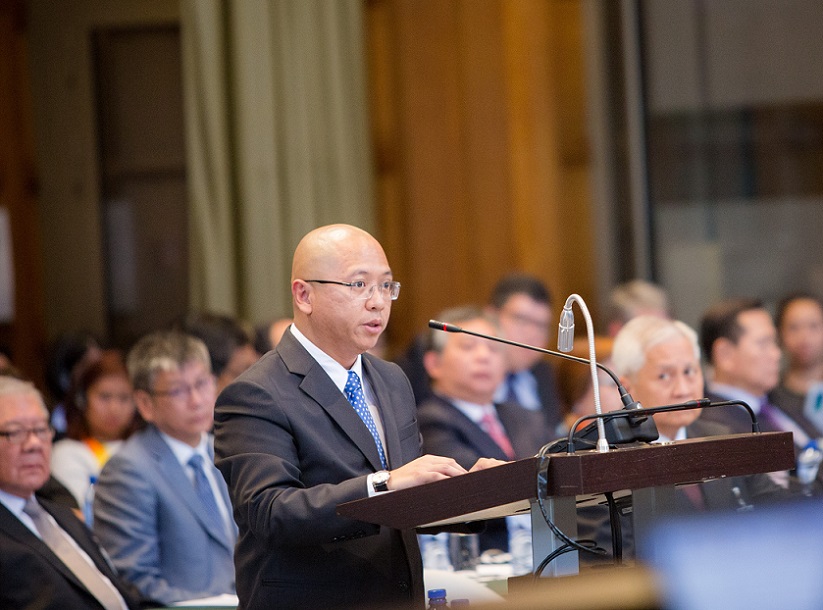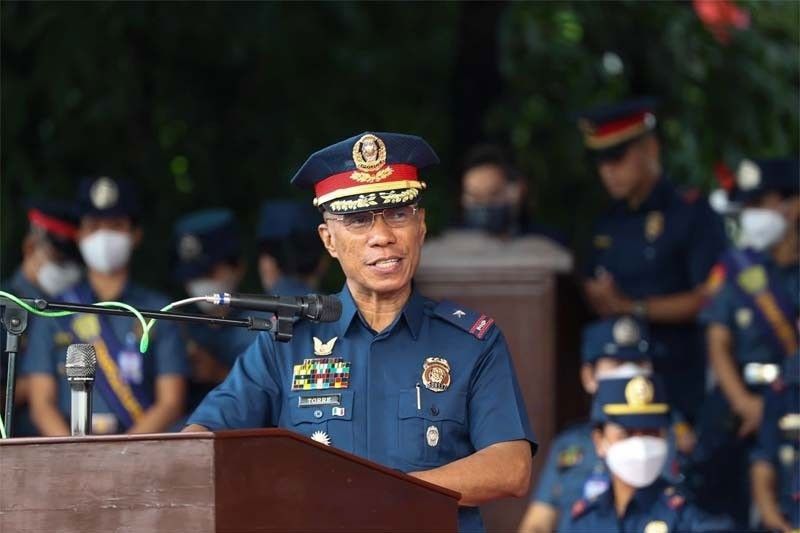Atty. Hilbay Should Replace Guevarra – The Man Who Beat China in Court

In the halls of power, where decisions shape the fate of nations, one name stands as a beacon of integrity and courage—Atty. Florin “Pilo” Hilbay. His legal prowess and dedication to justice have not only cemented his legacy but have positioned him as a figure crucial to the future of the Philippines. With his remarkable achievements, there is a growing call for him to take on a greater role in safeguarding the rule of law, perhaps even replacing Justice Secretary Guevarra.
Florin “Pilo” Hilbay is a distinguished Filipino lawyer, academic, and former Solicitor General of the Philippines, renowned for his steadfast defense of the rule of law and national sovereignty

Born and raised in Tondo, Manila, Hilbay’s humble beginnings did not hinder his academic excellence. He graduated from the University of the Philippines College of Law and topped the Philippine Bar Examination. His early career included serving as an underbar clerk to Supreme Court Justice Vicente Mendoza and later joining the Office of the Solicitor General (OSG) as an associate solicitor.
Hilbay rose to national prominence when he was appointed Solicitor General in 2015. His most significant achievement was leading the Philippines’ successful arbitration case against China before the Permanent Court of Arbitration (PCA) in The Hague. Under his leadership, the tribunal ruled in favor of the Philippines, invalidating China’s expansive claims over the South China Sea. This historic ruling strengthened international maritime law and reinforced the country’s sovereign rights over its exclusive economic zone.
The Fight Against China: A Victory for the Philippines
Hilbay’s defining moment came when he led the Philippines’ legal battle against China in the South China Sea dispute. As the Solicitor General, he took on an opponent far mightier in size and resources, yet he carried the confidence of a nation that had long suffered under the shadow of its powerful neighbor.

Under his guidance, the Philippines brought its case before the Permanent Court of Arbitration (PCA) in The Hague, arguing that China’s sweeping claims over the South China Sea, marked by its infamous nine-dash line, had no legal basis under the United Nations Convention on the Law of the Sea (UNCLOS). Hilbay and his team faced a formidable challenge—China had refused to participate in the proceedings, relying instead on military might and diplomatic pressure to assert its dominance.
But the brilliance of Hilbay’s legal strategy, combined with the undeniable facts of the case, turned the tide. He meticulously presented evidence, countered China’s claims, and laid out a compelling argument that the Philippines’ maritime rights had been violated. On July 12, 2016, the tribunal delivered its historic ruling: China’s expansive claims had no legal basis, and its aggressive actions in Philippine waters were unlawful.
The victory was a defining moment in international law, proving that legal principles could stand against coercion and intimidation. Hilbay had not just beaten China in court; he had given smaller nations hope that justice could prevail over brute force.
Beyond the South China Sea: A Staunch Defender of the Rule of Law
Hilbay’s legal battles did not end with the landmark PCA ruling. He has been at the forefront of critical cases defending constitutional rights, from advocating for the Reproductive Health Law to ensuring that key national security agreements like the Enhanced Defense Cooperation Agreement (EDCA) remained intact. His legal acumen has shaped policies and safeguarded democracy, proving time and again that he stands for principles rather than political convenience.

His steadfast commitment to the law makes him an ideal candidate to replace Justice Secretary Guevarra, whose tenure has often been marked by questionable legal interpretations favoring the powers that be.
Guevarra’s latest move, his ridiculous manifestation to the Supreme Court seeking to recuse the Office of the Solicitor General (OSG) from representing the government in Duterte’s petition for a writ of habeas corpus, is yet another testament to his spinelessness. The manifestation, which essentially argues that the OSG cannot effectively defend the government because it has always insisted that the ICC has no jurisdiction over Duterte’s drug war, is nothing short of a cowardly retreat.
“The OSG has consistently maintained, both in its submissions before the ICC and in its public statements, that the case of the Philippines was not admissible and that the ICC failed to timely exercise its jurisdiction,” Guevarra and his assistant solicitors general absurdly claimed in their manifestation.
By attempting to wash his hands of the case, Guevarra has not only embarrassed the Philippine legal system but has also exposed his utter lack of commitment to justice. Instead of defending the government’s interests in court, he has chosen to abandon ship just when accountability is knocking at Duterte’s door. The argument that the OSG cannot participate simply because it previously denied ICC jurisdiction is laughable—an admission that their previous stance was nothing more than a legal smokescreen designed to protect a mass murderer from justice.
A Crucial Role in the ICC Case Against Duterte
Now, another battle looms on the horizon—one that involves holding former President Rodrigo Duterte and his allies accountable for alleged crimes against humanity. The ICC has initiated proceedings against Duterte over his brutal war on drugs, a campaign that has led to thousands of extrajudicial killings.
Duterte and his cabal of mass-murderer supporters have attempted to challenge the legitimacy of the ICC’s jurisdiction over the Philippines, filing petitions aimed at evading accountability. This is where Hilbay’s expertise in international law becomes even more critical.
Having already proven his capability in navigating complex international legal frameworks, Hilbay could play a decisive role in ensuring that the Philippines upholds its obligations under international treaties. His deep understanding of the law and his unwavering stance against impunity make him the perfect counterforce to Duterte’s attempts to escape justice. Unlike Guevarra, who has proven time and again that he lacks the backbone to uphold justice when it truly matters, Hilbay would not hesitate to take the fight to where it belongs.
The Need for Strong Legal Leadership
As the Philippines faces these pressing legal battles, it needs leaders who are not only competent but also committed to the principles of justice and human rights. Hilbay embodies these qualities. His victory against China demonstrated his ability to stand firm against external threats, and his dedication to legal advocacy has proven his resolve against internal corruption and abuse of power.
Replacing Guevarra with Hilbay would signal a shift towards a legal system that prioritizes fairness over political loyalty. It would ensure that cases of national significance—whether they involve foreign disputes or holding past leaders accountable—are handled with the competence and integrity they deserve.
A Legacy of Courage and Justice
Florin Hilbay is more than just a lawyer; he is a defender of the nation’s dignity and a guardian of the rule of law. His achievements in the legal field have not only set precedents but have also shaped the future of the country.
The battle for justice in the Philippines is far from over. With China’s continued aggression in the West Philippine Sea and Duterte’s legal maneuvers to escape accountability, the country needs a steadfast legal warrior—someone who has already faced giants and emerged victorious. Hilbay has proven that he is that warrior. The question now is not if he should take on greater responsibility, but when.



